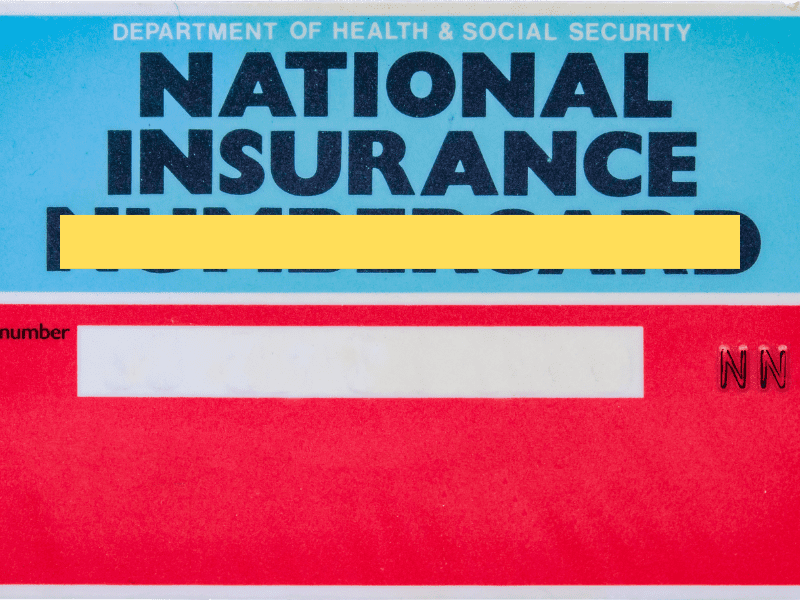
Have you been wondering how national insurance works? Many of us overlook national insurance contributions until they begin vanishing from our salary. However, there’s actually a lot to know, and our friendly experts here at LiderTax have summarised some of the most crucial things you need to know about national insurance as follows to help.
Why Might I Need to Top Up my National Insurance Record?
If you have gaps in your National Insurance record, you may want to consider topping it up. This can potentially offer a few significant benefits.
Most notably, since your National Insurance contributions play a vital role in determining your eligibility for state benefits, having an incomplete NI record can impact your entitlement to full benefits. Topping up your record allows you to bridge these gaps, thereby preventing you from missing out on potential State Pension payments and the like.
How Many Years of NI Contributions are Needed for a Full Pension?
For the full State Pension allowance, you’ll need to have contributed enough NI contributions over the years. At present, based on the new State Pension rules, the requirement for a full State Pension is 35 years; however, you’ll still obtain a partial State Pension if you have paid NI contributions for between ten and 35 years.
Once you have reached the State Pension age, you may not need to continue paying National Insurance. However, self-employed workers and those paying Class 4 contributions will need to continue until the end of that year.
If you have not achieved a minimum of 10 years of NI contributions, you likely won’t be eligible for any State Pension. Indeed, you typically need a minimum of ten years of NICs to receive a partial State Pension. For a full State Pension, the 35-year requirement applies.
How Can I Check if I Have Any National Insurance Gaps?
If you are concerned that you might have a gap in NI, you can potentially check this by getting a State Pension statement. This will let you know about how much state pension you’re entitled to. Alternatively, the HMRC can provide a National Insurance statement directly, which can show you whether the pension has any gaps.
How Many Years of Missing National Insurance Contributions Can I Buy?
If you’ve noticed gaps in your state pension, you may need to buy years of missing national insurance contributions. However, voluntary NI payments are not necessarily limitless; generally speaking, you can buy voluntary contributions based on set periods of time.
For example, until April 5th, 2025, you can purchase voluntary contributions for the ten-year period between 2006 and 2016; thereafter, it will only be possible to purchase voluntary national insurance contributions for the last six years. This could make a significant impact on your contributions. As such, we strongly recommend considering the impacts of this when determining your approach to national insurance contributions.
How Much Do Voluntary National Insurance Contributions Cost in 2023?
If you are considering making voluntary national insurance contributions, perhaps to cover a gap, it’s well worth considering the rates. Voluntary Class 3 National Insurance contributions are currently charged at £17.45 per week for the 2023 to 2024 tax year. For previous tax years, the Class 3 rate was around £15.30-£15.85 per week. Alternatively, you can pay by monthly direct debit, which will vary between £69.80 and £87.25 per month. The exact rate per month can be found from the Government’s NI Contributions guide.
Who Can Pay Voluntary National Insurance Contributions?
It’s not necessarily immediately obvious who might want to pay voluntary (Class 3) national insurance contributions. Some common examples of people who might want to pay voluntary national insurance contributions on their earnings include:
- Those who are employed but who earn £123 per week or less (and so are not required to pay National Insurance through their earnings)
- Self-employed individuals with an income of £1000 or less over the course of a year
- Self-employed individuals with profits below £6725; this also applies to those with low earnings and small profits generally.
- Those who are living abroad (without working) and who have lived in the UK for 3+ years in a row
Depending on which category you fall into, it’s worth considering that you may need to contact the HMRC directly. They may be able to tell you whether you have a gap in your NI contributions. If so, you might want to consider whether you should make voluntary payments to top it up.
It’s worth noting, people who pay reduced rates (due to being a married woman or widow) cannot pay voluntary contributions. Moreover, those who are eligible for NI credits may also be ineligible to make voluntary Class 3 payments.

Is it Worth Topping Up National Insurance Contributions?
At this point, we’ve looked at some of the main things you should know about making NI contributions. But should you top up your national insurance contributions? Well, this will depend on your individual situation.
As such, we strongly recommend contacting your local “accountant near me” for personalised support. However, topping these up can potentially offer many great benefits. Thus, it’s something that may be worthwhile in your situation if you fall into one of the following categories:
State Pension Top-Up FAQs
Q1. Is it worth filling gaps in National Insurance?
If you are concerned that you have gaps in your NI contributions, topping it up may be worthwhile. Topping up allows you to receive your full State Pension entitlement, provided you’ve met the minimum contributions criteria. You will need to contribute for 35 years or more to receive the full State Pension.
Q2. What happens if I pay more than 35 years of National Insurance?
If you pay over 35 years of NI, you’ll be entitled to receive the maximum State Pension. However, you won’t receive any more than those who paid the 35 years of NI contributions exactly. As such, there may be limited benefits to doing so, although this may be a requirement in some cases.
Q3. How much does topping up a year of NI contributions cost?
If you need to top up your NI contributions, the cost will vary year on year. At present, the cost to top up your NI contributions for the 2023-2024 tax year will be around £900.
Final Thoughts
NI is one of those things that many of us ignore. In fact, often, we only take a few moments to acknowledge its deduction on our salary. However, in reality, understanding national insurance and all of the complexities of the topic can be a little difficult. That’s why our teams have summarised everything you’ll need to know to give you a thorough understanding in today’s guide.



